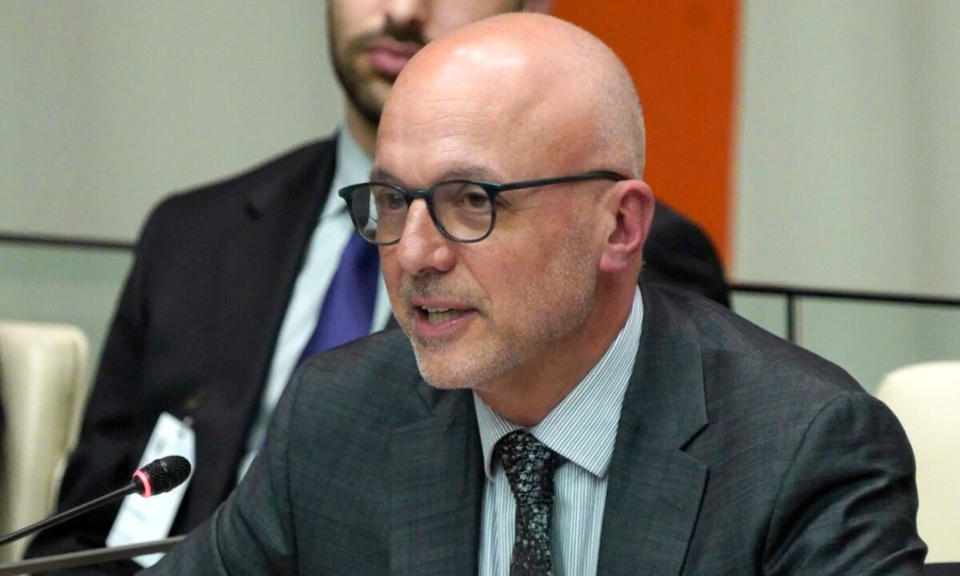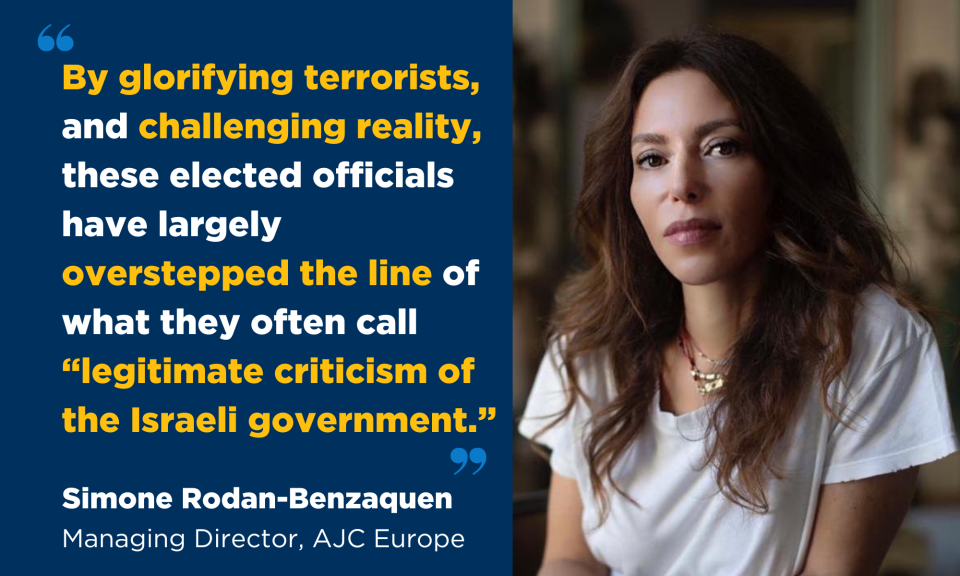Press releases
AJC Disappointed that European Parliament didn't endorse “Two States for Two Peoples”
Strasbourg - 10 September 2015 - The AJC Transatlantic Institute is disappointed that the European Parliament did not endorse the principle of “two states for two peoples” in today’s passage of a resolution on the EU’s Role in the Middle East Peace Process. An amendment calling for Israeli-Palestinian negotiations to be based on this principle was rejected 421 to 134 with 59 abstentions.
"The United Nations Resolution 181, the partition plan passed by the UN in November 1947, specifically called for dividing Palestine into independent Arab and Jewish states, with each state constituting the respective homelands for its peoples,” said Daniel Schwammenthal, Director of the AJC Transatlantic Institute in Brussels. “It is the rejection of this very concept of a Jewish homeland in the region that led to the first Arab-Israeli war and that is still the core of the conflict. It is unfortunate that the European Parliament failed to reaffirm this principle, thus missing an opportunity for a constructive support of the the peace process."
Martina Anderson, a UK Member of the European Parliament, in an intervention just before the vote, warned that support for the amendment would supposedly pave the way for “ethnic cleansing” of the non-Jewish population. “This is nothing short of incitement against the Jewish state,” said Schwammenthal. “Israel, which already considers itself a ‘Jewish state,’ respects the civil rights of all its citizens and is the only country in the Middle East where Arabs enjoy democratic rights and freedom from persecution.”
The resolution, initiated by Socialist group in the European Parliament, supports EU High Representative Federica Mogherini’s initiative to give the EU a stronger role in pushing for peace negotiations between Israel and the Palestinian Authority.
The final text, agreed among all major political groups, is far more balanced than the original draft of the Socialist Group. It calls among other things for the EU to ensure “that no EU funding can be directly or indirectly diverted to terrorist organisations or activities” and acknowledges how “increasing radicalism and the spread of terrorism in the Middle East are creating significant security threats for Israel.”
“The EU, particularly through its leverage over the Palestinian Authority as its biggest donor, could make crucial contributions to help revive the peace process,” said Schwammenthal. “In order to do that, however, it needs to be seen as an honest broker by all parties.”









